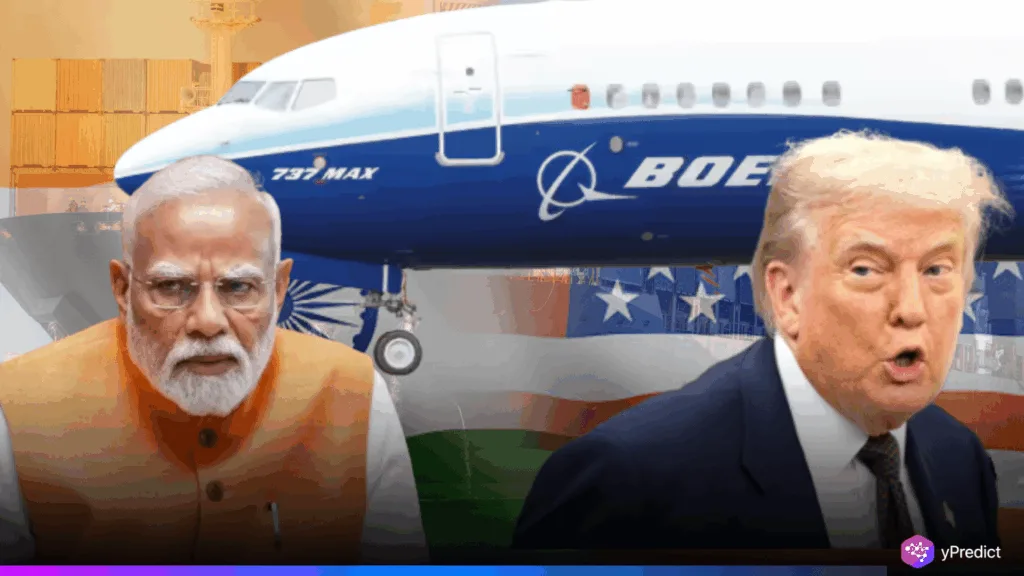
India’s decision to halt a $3.6 billion defense deal with Boeing marks a major shift in India-US trade ties. President Trump’s 50% tariff increase on Indian exports, including textiles and auto parts, prompted this action. The rupee fell 42 paise to 86.68 against the US dollar, indicating cost containment and strategic defiance. Furthermore, the stalled agreement for six P-8I surveillance aircraft shows how protectionist measures are shifting the focus of global trade.
India-US Trade Row Deepens Over Tariffs and Oil
India abandoned its Boeing defense deal just three weeks before the U.S. tariffs were set to take effect. Washington imposed the tariffs in response to India’s $44.4 billion trade surplus and ongoing Russian oil purchases. Thus, they aim to export $8 billion to India, which is one of the highest amounts of any U.S. partner.
The initial $2.42 billion value of the Boeing deal grew to $3.6 billion. The cause is inflation and supply chain disruptions worldwide. Furthermore, India’s action demonstrates how economic strain on one front can affect significant industries. This includes industries like defense, since tariffs increase the cost of components.
Are Global Currencies Bracing for More Turmoil
The sharp drop in the Indian rupee caused ₹25,000 crore in foreign investors to pull out of domestic stocks. Additionally, this capital flight increases the risk of inflation, which puts pressure on India’s import bill. Investor confidence is still shaky despite India’s $702 billion in foreign exchange reserves.
Currently, exporters are searching emerging markets such as Africa and Southeast Asia for new opportunities. Additionally, this change in approach attempts to lessen their increasing reliance on the US market. The impact of the tariff is already eroding trust in a number of other developing nations.
Anxiety over the India-US trade war increased, and world equity markets plummeted. Investors were worried that other countries would get back at them for the war. In addition, the global industrial and financial systems are becoming more and more unstable. Japan’s Nikkei dropped 3.9 during the day, and the S&P 500 closed the day lower by 2.3%.
India-US Trade Dispute Shakes Defense Priorities
India’s decision to cancel the defense contract with Boeing shows a move toward military projects at home. The Advanced Medium Combat Aircraft (AMCA) is one of them. This signals a longer-term effort to diminish dependence on foreign suppliers amid increasing protectionist threats.
In addition, the delay could damage Boeing’s bottom line and benefit competitors such as Airbus and local defense firms. However, the impact of tariffs is now forcing nations to reconsider how trade policies affect their industrial and defense frameworks.
Global Markets on Edge
Global tensions have increased as a result of the US-India trade restrictions. As a reaction, the EU and Canada have proposed retaliatory tariffs of $84 billion and $20 billion, respectively. Additionally, an extended standoff would decrease the efficiency of international trade and hamper the recovery of export-led economies.
But it can change its strategic approach towards Russia or China if tensions persist. Global economic trends could also be altered due to the US and India’s increasing geopolitical strains. There are financial implications of the current trade standoff that might alter the global market dynamics.







